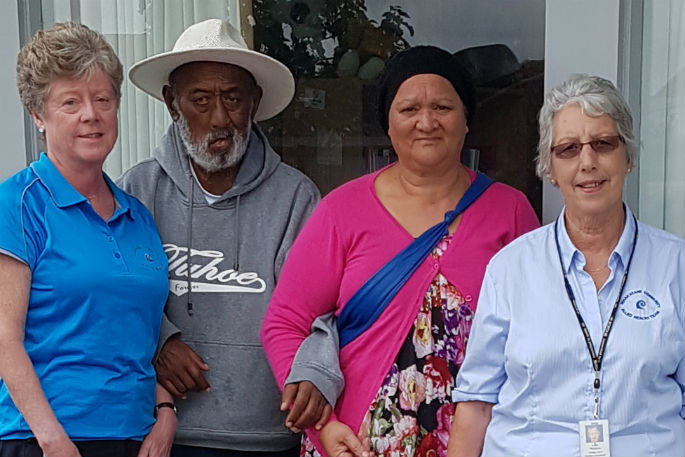A new health service provided by the Bay of Plenty District Health Board is supporting people to live safely in their homes.
For people like Kath Gardiner, being able to see an occupational therapist just a few minutes from her home in Te Teko has been a godsend.
In recent years the little things most of us take for granted, like getting up out of an armchair and getting up off the toilet, have gradually become quite tricky for Kath.
'My knees aren't what they used to be. I've got bruises on my arms where I've knocked myself trying to brace and stop from falling over.
'Like most women, I'm not one to moan, I just accepted that's the way it is. I didn't realise there was support available and I could do something about it.”
That all changed six months ago when Kath found out about a new health service being provided by the Bay of Plenty District Health Board working with her local health service He Tohunga Ora mo Rangitaiki.
Every week either community occupational therapist Julie Mallen or physiotherapist Lois Watson, from the BOPDHB's Community Allied Health Service is at the Te Teko Health Clinic providing assessment, support and advice aimed at keeping people healthy in their homes.
'Our aim is to support people to live safely in their homes. Falls prevention is a big issue. By making slight modifications to a person's home, or supporting them with mobility equipment or an exercise programme, we can make a huge difference to the quality of a person's life. That can reduce the risk of them having a serious fall which can lead to a lengthy hospital stay,” says Julie.
Julie has been working as an occupational therapist in people's homes for nine years. Referrals are received by Te Koru Therapy & Rehab at Whakatane Hospital direct from the public or other health professionals.
As you do, working in a small community, Julie got to know some locals quite well and realised many people were unaware that occupational therapy or physiotherapy home support existed.
'For example I found out about a person who'd been diagnosed with Multiple Sclerosis twelve years ago and had not been referred to Allied Health. That was a turning point for me; I thought there must be a better way.”
As a result Julie built relationships with staff at He Tohunga Ora mo Rangitaiki to establish an Allied Health drop in clinic, following patients up at home at a later date if needed.
Julie and Lois work closely with the other health professionals at the clinic who send patients their way.
It's through the clinic that Te Teko woman Louise Te Maipi has been able to access the support she desperately needed to continue caring for her elderly uncle, Koata Rota, who is living across the road from her with dementia and diabetes.
'It got to the point where caring for uncle was taking a toll on my own health. It was almost becoming a daily occurrence, having to rally-up support from some young fit healthy relatives to help me move uncle because he'd fallen down or got stuck inside,” says Louise.
Aside from carrying out occupational therapy, physiotherapy or women's health issues assessments, as part of the BOPDHB's Community Allied Health Service, Julie and Lois also refer their patients to other support they may need, such as a social worker, dietitian, podiatrist, speech-language therapist, Maori Health or Support Net Needs Assessment and Service Coordination Service (NASC).
'It's about working out what support each patient needs to keep them healthy in their home. We also refer to specialist health services, as well as other support agencies for things like budgetary advice,” says Julie.
In Louise's case this led to her getting regular home help, personal care and carer support days to back her in her role as caregiver and uncle being seen by a Geriatrician and other health professionals.
'It's been a weight off having that extra support. In my whanau we look after our own. I know there will come a time where we may have to face coming up with a different living arrangement for uncle. But right now with additional support, we're coping.”
Although Julie and Lois have only been working from the Te Teko Health Clinic for six months, word has spread in the community and they are now seeing people from Edgecumbe and Kawerau.
Health Centres at Matata and Waimana are also keen for a similar service which locals can access on their doorstep.



0 comments
Leave a Comment
You must be logged in to make a comment.